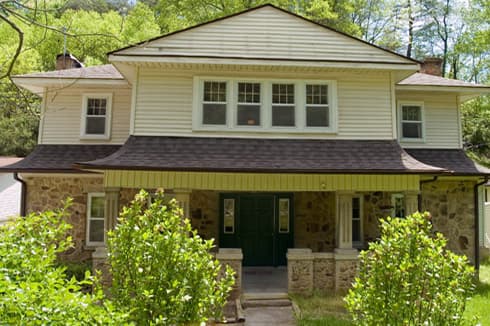Comparing Reverse Mortgage vs. HELOC
- Learn the differences between HELOC and Reverse Mortgage
- Compare the Pros and Cons of a Reverse Mortgage vs. HELOC
Reverse Mortgage or HELOC - Which Loan is Right for You
One alternative to reverse mortgages many consider is taking out a home equity loan or line of credit. Although both loan options can provide homeowners with extra income, there are several key differences:
Home Equity Loan/HELOC
A home equity loan is a traditional mortgage product that allows a homeowner to borrow money by securing the loan against the home. The homeowner makes monthly payments to repay the money borrowed in a home equity loan. The property is used as collateral in the event that the homeowner fails to repay the loan.
Consider a home equity loan or HELOC if:
- You do not meet the age and equity requirements of a reverse mortgage
- You have income sufficient to cover monthly payments
- You only need to borrow a small amount of money (i.e. <$100,000)
| Home Equity Loan Pros | Home Equity Loan Cons |
|---|---|
| Low closing costs with no loan servicing fees and insurance premiums | Must make monthly payments to repay the home equity loan |
| Retain the equity to your home at the end of the loan | Must make monthly payments to repay the home equity loan |
| No equity or age requirements | Lender can foreclose on your property if you fail to make monthly payments |
| Tax deductible interest in many cases | Need to have excellent or good credit and have a low debt to income ratio |
Home Equity Loan Pros & Cons. Source: Bills.com
Reverse Mortgage
Unlike a home equity loan, a reverse mortgage requires no payments to be made to the lender until the homeowner(s) pass away, move, or sell the home. The loan is repaid with the proceeds from the home sale or by refinancing the loan. You are only required to continue making payments for property taxes and insuring your home.
Consider a reverse mortgage if:
- You do not have enough income or high enough credit to qualify for a home equity loan
- You cannot afford the monthly payments on a home equity loan
- You need a large amount of supplemental income
| Reverse Mortgage Pros | Reverse Mortgage Cons |
|---|---|
| No credit and income requirements | High closing costs |
| No monthly payments | Must be 62 years old or older and have substantial equity in your home |
| The lender cannot foreclose on your property because there are no monthly payment | May have little to no equity remaining after the loan is repaid |
| Tax free income |
Reverse Mortgage Pros & Cons. Source: Bills.com
Reverse Mortgage vs. Home Equity Loan/HELOC
| Reverse Mortgage | Home Equity Loan | |
|---|---|---|
| Purpose of Loan | To receive income by releasing the equity in the home | To receive income by securing a loan against the home |
| Credit Qualification | No | Yes – Typically good credit |
| Income Qualification | No | Yes – Must be able to make monthly payments |
| Age Qualification | Yes – Must be 62+ | No |
| Equity Qualification | Yes – Must have paid off mortgage or have a low mortgage balance | No |
| Closing Cost Amount | High | Low |
| Origination Fee | Yes | Yes |
| Appraisal Fee | Yes | Yes |
| Insurance Premium | Yes – 2% of loan amount up front plus 0.5% annually on outstanding loan balance | No |
| Loan Servicing Fee | Yes – $30 to $35 per month | No |
| Payments to lender | None | Monthly payments |
| Non-repayment issues | None – consumer is not making monthly payments to lender | Lender can foreclose if no payment is made |
| Equity at end of loan | No equity | Equity is retained after loan is paid off |
Reverse Mortgage vs. Home Equity Loan. Source: Bills.com
